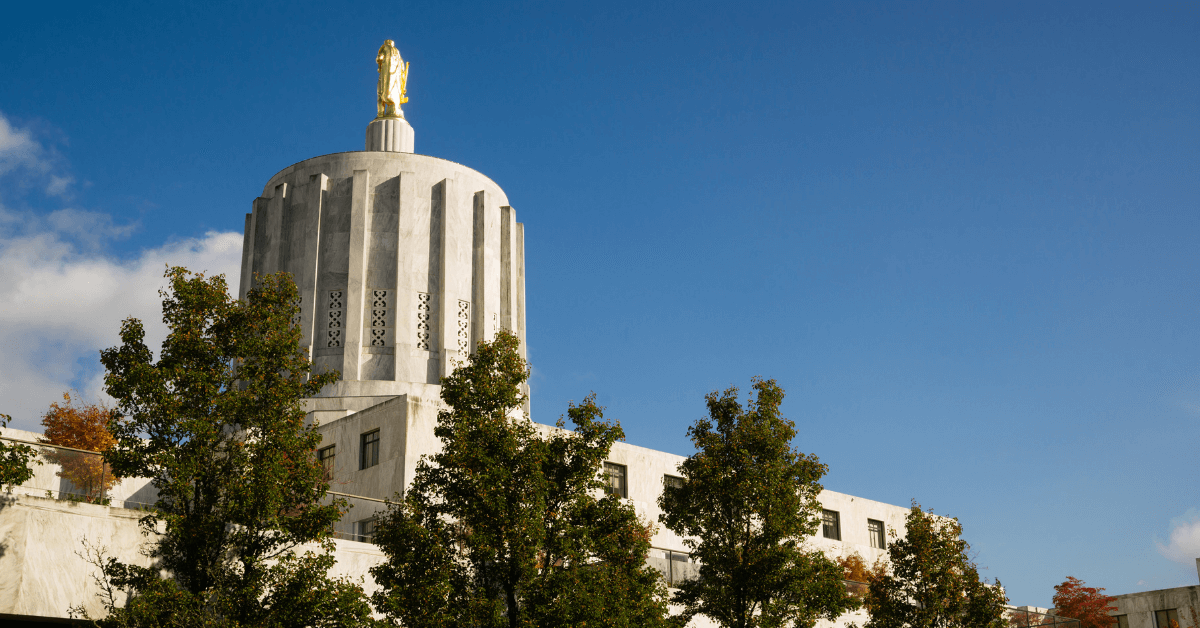
Oregon’s Ballot Measure 104 Would Close Legislative Loopholes
Update (Nov. 7, 2018): Voters in Oregon decided to vote against Proposition 104 by a decisive vote of 65-35. Stand by for more updates on what this might mean for your community. Sign up for updates.
More than 20 years ago, Oregon voters approved a constitutional amendment requiring a supermajority to approve tax increases in the state legislature.
It was a great idea then, and it remains a great idea now. Because of that supermajority requirement, a bipartisan effort is typically needed to increase taxes, which means there would be a justifiable reason to raise taxes on Oregonians.
Since then, politicians have created loopholes in order to introduce tax increase legislation that only require a simple majority to pass.
In the past two legislative sessions alone, at least 25 bills have been introduced in Salem that circumvented this constitutional amendment.
Most of these proposals would impact everyday citizens of Oregon. Middle-income families and small business owners alike were the targets of these tax increases.
- There was an attempt to eliminate the home mortgage interest tax deduction for many taxpayers – a toll that provides over a half-million Oregon households a deduction on their state income taxes. They also considered a proposal to eliminate property tax deductions and other legislation damaging to homeowners. (HB 2006–2017)
- Oregon politicians have long been in pursuit of a carbon tax, known as cap and trade. The legislation would require Oregon companies to pay a tax on carbon emissions which would hurt consumers by substantially increasing the costs of transportation, food and utilities, while also resulting in job losses. Politicians attempted this without a supermajority vote and without providing Oregonians evidence that it would result in reduced carbon emissions. (SB 965- 2015; SB 1070- 2017; HB 4001- 2018)
- Most concerning, the legislature robbed thousands of Oregon small businesses of recent federal tax cuts by disconnecting from the federal tax code – raising $244 million in new revenue from Oregon small businesses on a simple majority vote. (SB 1528– 2018)
Oregonians now have a chance to close those loopholes.
Ballot Measure 104 would once again clarify that politicians can’t raise revenue without a supermajority vote.
That means, not only would the supermajority vote be required for raising taxes, but would be required to eliminate tax deductions, create new fees or increase existing fees without broad support.
It ensures balanced, bipartisan agreements are in place before being passed on to the hard-working citizens of Oregon.
And it’s not just about finding a way to not raise taxes.
Many of these same Oregonians who would be adversely affected by such legislation that could be passed with such a slim margin are homeowners – or trying to become homeowners for the first time.
The cost of housing is a significantly challenging issue in Oregon. From the state’s biggest cities to its most rural counties, many young citizens and families are unable to afford buying their first home, even when they are trying. Being saddled with more college debt is making the dream of homeownership seem distant enough, and homeownership should be an affordable option for everybody.
Giving small factions of politicians the ability to make laws that make it harder to own a home or even maintain ownership of a home is not in the best interest of the residents of Oregon.
Tax increases, fee increases, new fees and eliminating or curbing tax deductions that many homeowners or first-time buyers are counting on are difficult decisions that should have substantial, bi-partisan legislative support before being passed. As such, they shouldn’t be put into law by as slim a margin as one vote.
Politicians need to look for balanced solutions to fund state government. Measure 104 seeks to ensure that. More than 174,000 Oregonians signed a petition supporting the measure and they were backed by more than 15 statewide business organizations and grassroots groups supporting it.
Oregonians seem to want to ensure that changes to their taxes should be done for a good reason – one that a majority of people support.
Time to Focus on Affordable Housing
Taxes on real estate are not the answer. Sign the petition calling on Congress to address our country’s housing shortage.





